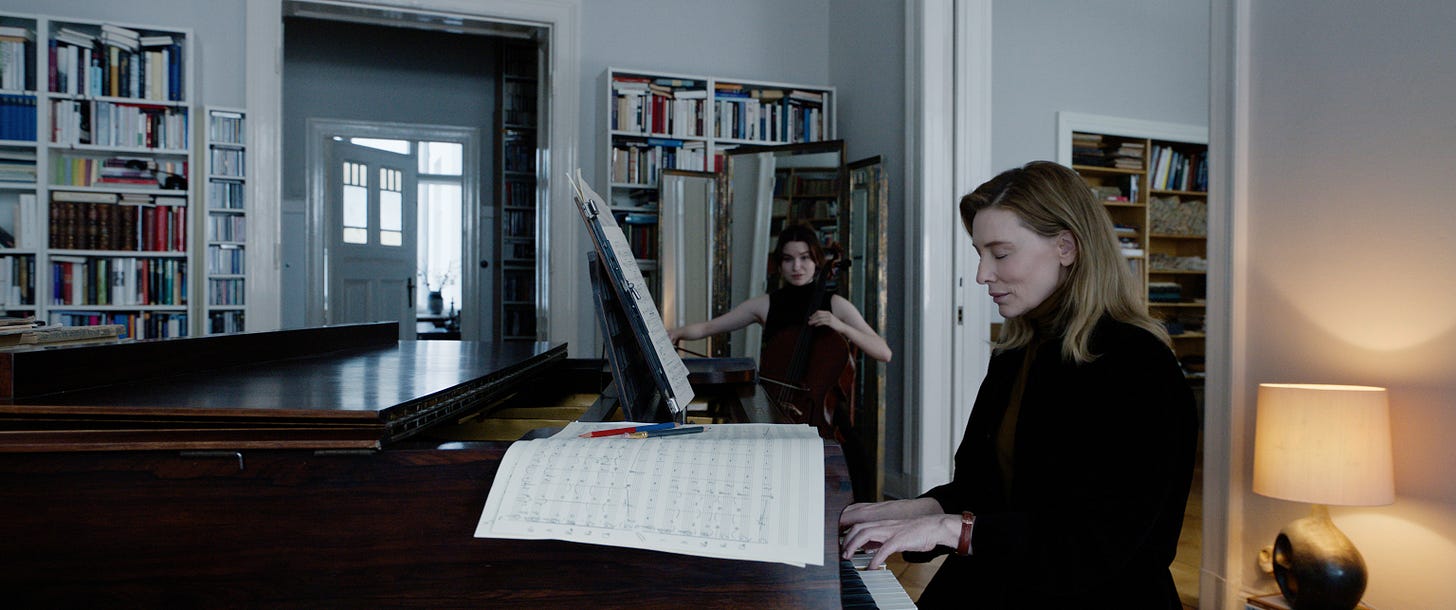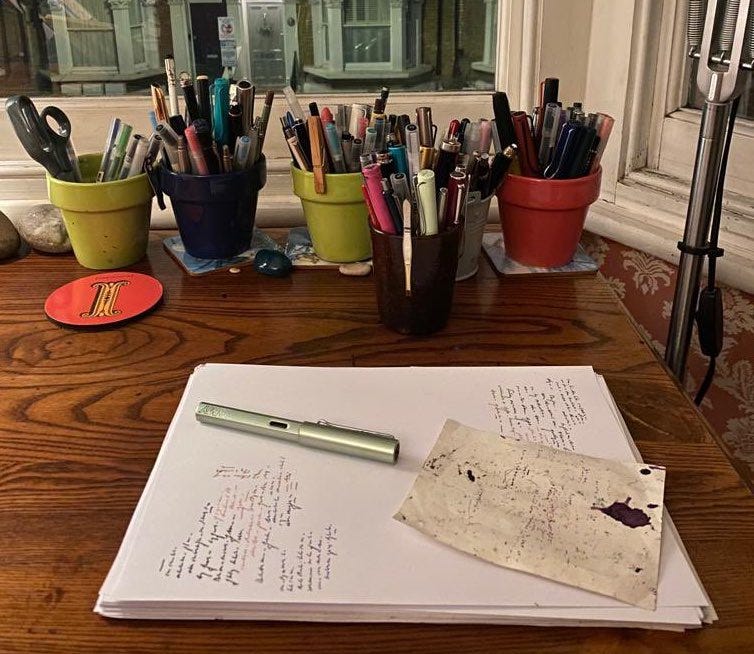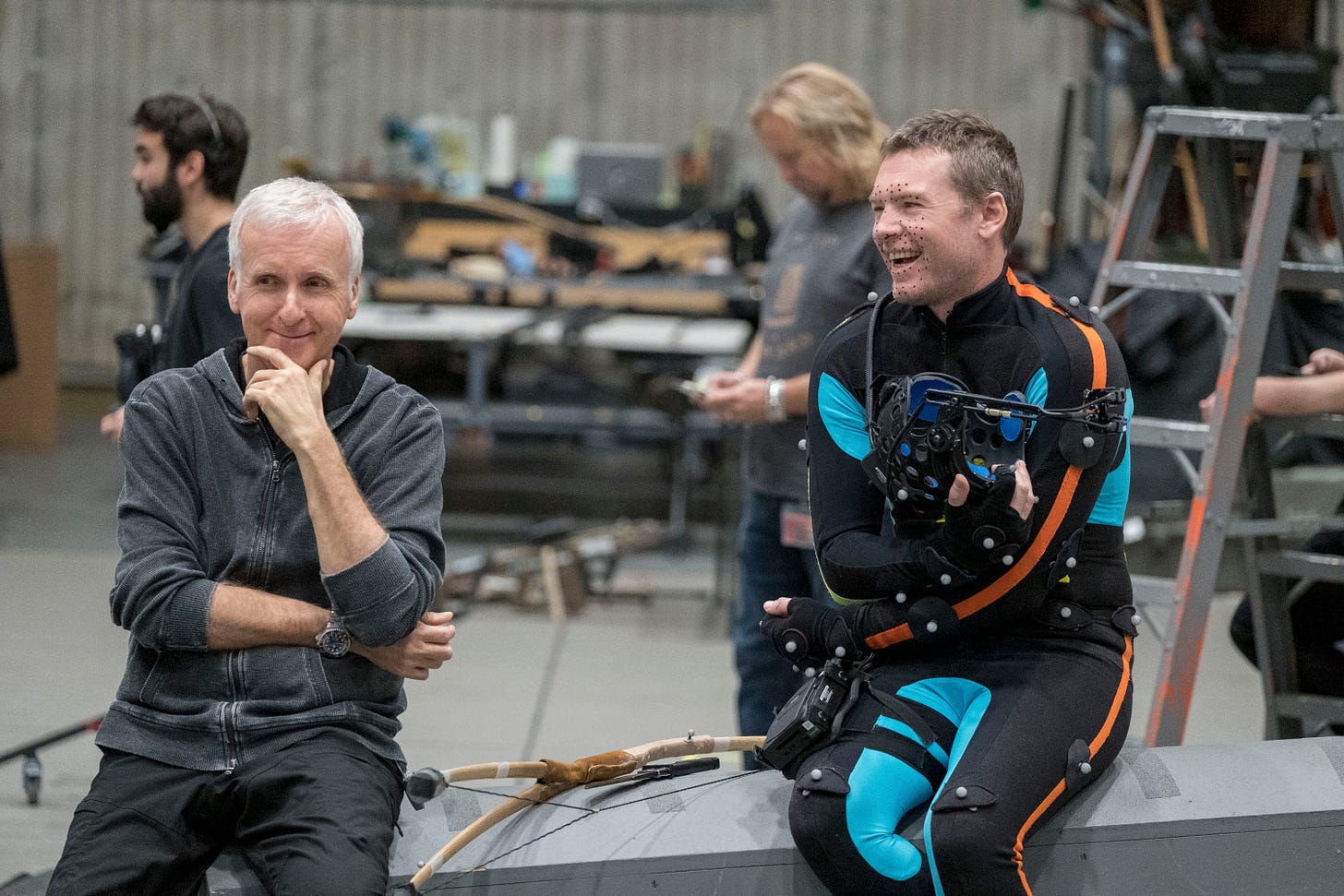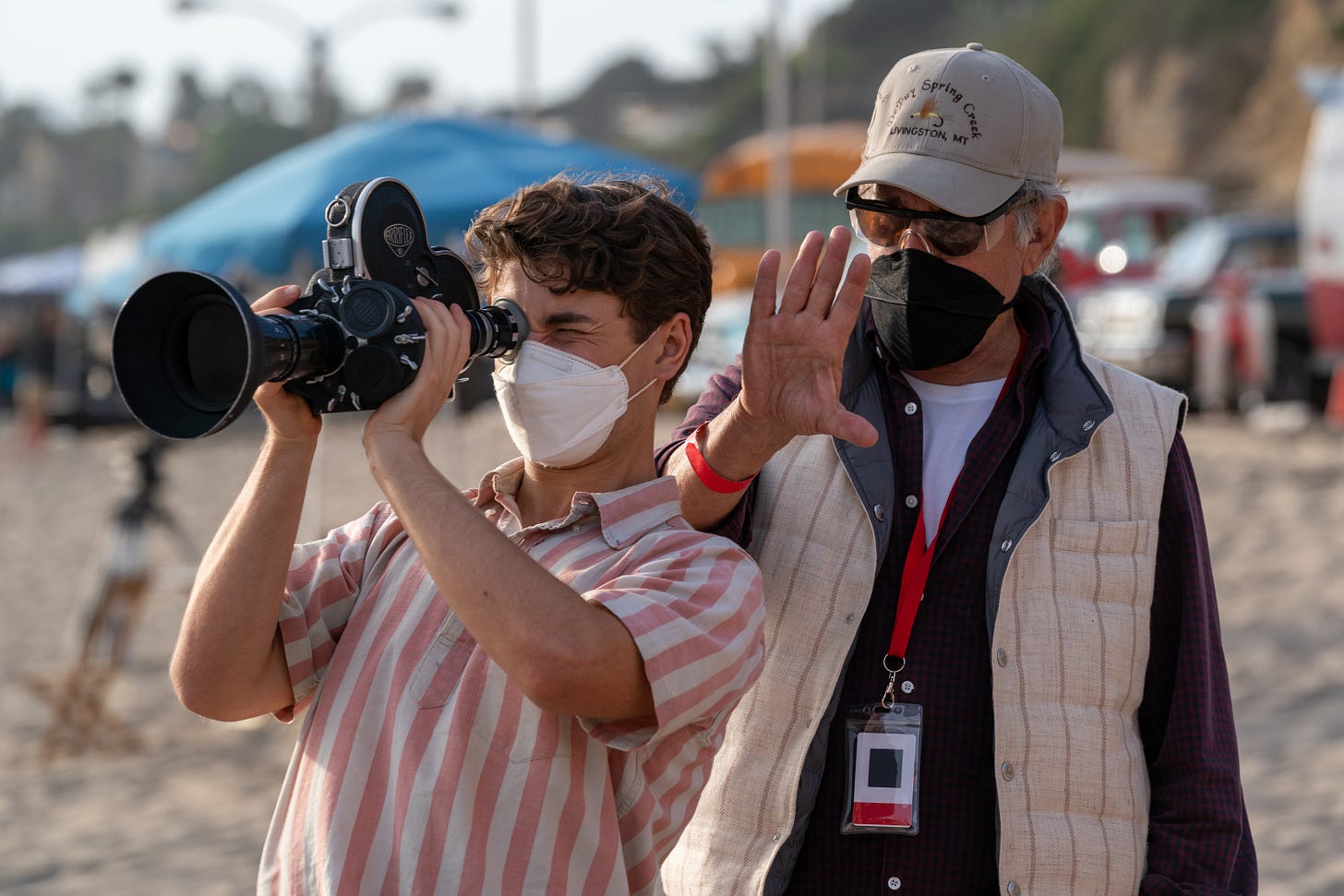Links & Looks. January 16, 2023
Hanif Kureishi On Life And Near-Death; Bella Tár; Cameron Crows; Producers' Foiled Career Paths; Tony Kushner Sets "Perfect Mousetrap"
Todd Field talks to Michael Schulman at The New Yorker and rehearses the wealth of odd career moves that brought him to Tár.
One day, he went into Safari Grill, an uptown bar popular with actors, to apply for a bartending job, despite having no experience, and waited around for an hour. Then Liza Minnelli, who was lunching with Jimmy Connors, called him over, saying, “Young man! Young man!” She grabbed his lapel and said, “I love that jacket!” This got the manager’s attention, so Field lied and said he’d been making Martinis for his mother since he was eight; he was hired as the bar manager.
Scorsese’s message on Field’s work, recorded for the New York Film Critics Circle:
The clouds lifted when I experienced Todd’s film… What you’ve done, Todd, is that the very fabric of the movie you created doesn’t allow this. All the aspects of cinema and the film that you’ve used, attest to this. The shift in locations, for example, the shift in locations alone do what cinema does best, which is to reduce space and time to what they are, which is nothing. You make it so that we exist in her head. We experience only through her perception. The world is her. Time, chronology and space, become the music that she lives by. And we don’t know where the film’s going. We just follow the character on her strange, upsetting road to her even stranger final destination.
Plus, from Vulture: “49 True Facts About Lydia Tár.” (“Tár is friends with Thomas Chatterton Williams”; “The employees at the Joe Coffee on Columbus and 68th hate Tár”; “Tár has slept with Kristen Stewart.”
Hanif Kureishi’s pots and pens. From Kureishi’s Twitter..
Hanif Kureishi had a fall in Rome; paralyzed, he’s writing on life and near-death, via dictation, serialized here and on Twitter.
I wake at four in the morning knowing I will be moving today. I wonder what the place will be like… Then Isabella and I leave my room and are taken by ambulance to the new hospital. I catch a glimpse of the blazing blue sky. My new room is wide and comfortable and has sophisticated facilities. Immediately I feel depressed. I am in despair, I don’t want to here, I want to go home, I’d rather die now.
I’ve had enough of this shit. I feel I lack the strength to take this on. I really don’t want to live like this. It’s shit and I’m tired of asking Isabella to do so much for me.
A young woman in a wheelchair with dyed bright blue hair rolls herself into the room and we introduce ourselves to each other. I ask her if we can be friends. I plead with her to not let me go. She tells me she won’t. She says; “After my accident, when I first came here, I had the use of only one eye.”
… Until tomorrow, dear friends, in these shitty times, your writer Hanif, and a kiss.
Best thing a cabbie has said to you?
“How long did it take you to write ‘The Kite Runner?’” To which I replied: “If I’d written ‘The Kite Runner,’ I’d be in a limousine, not your fucking cab.’”
From Sarah Lyall’s Tweet-filled New York Times’ write-around of Kureishi’s dispatches:
“Mentioning an impending rectal exam, Kureishi recalled the last one he had, courtesy of the public National Health Service back in England. The nurse mistook him for Salman Rushdie.”
As the nurse flipped me over she asked me, “How long did it take you to write ‘Midnight’s Children?’ I replied, ‘If I had indeed written ‘Midnight’s Children,’ don’t you think I would have gone private?”
James Cameron celebrates some more, via AFP, as Avatar 2 inches toward a $2-billion gross.
I don't think movies are ever gonna die. We need this as culture, as a society. We need to go into these theaters into these big large spaces with hundreds of strangers. I'm also seeing a pattern of the type of film that people will go to see in a movie theater and the type that they won't. And so streaming still has a very, very rich and important place.
Cameron takes criticism:
That's in the nature of art. You can't please everybody. [Critics] think a certain kind of earnestness, where you wear your heart on your sleeve, is unsophisticated or naive. To me, that's a little bit of a pseudo-intellectual perspective.
A piece of American Pie.
More notes underfoot in the forest of film production in “The Disappearance Of The Hit-Driven Business Model,” by Chris Moore at “Dear Producer”:
As the industry changes, where do creative producers fit in? How do we make a living and provide services for the subscriber-driven companies? How do we get paid a sustainable salary, while also having healthcare and supporting the overhead of our work, which often comes out of our own pocket? How do we push projects that may not seem obvious until they are made? Projects that are controversial, unusual, or take risks?
Moore draws on his own history.
Many producers of my generation had a business plan for our careers. For me, it was directly dependent on the success of each individual film. Not long ago, profit in the film industry was based on a hit-driven business model. If a lot of people bought tickets to see a film in theaters, rented the DVD, or paid for a digital download, it sometimes made a profit, and was considered a hit. At the time, producing a box office hit led to an easier time getting your next project made and usually with a bigger budget.
He did well for himself, and his roster of productions.
I had some hits. Some of the talent I worked with became big names, and rightfully so. I was respected for some bets I took early in the life of a project like Good Will Hunting or American Pie, and later, for having an eye for original and unexpected stories that could become hit movies, like Manchester By The Sea. I increased my odds of producing a hit by working with talented storytellers who had market value. American Pie, and its sequels were one version of a recurring business for me and working with Matt Damon and Ben Affleck for a number of projects was another.
But…
Unfortunately, the hit-driven business model I built a career around is not the reality of the industry we are living in today, and I can finally admit that we are not going back to the way it was. I realized I hadn’t acknowledged how much things had changed. Today, there is a very small speculative market compared to the 1990s and early 2000s, and large companies are no longer driven by the profit of each individual film. The current subscription-based business model removes the opportunity to create a hit. In the way the film economy works now, it is rare to generate a profit large enough to be shared by the parties responsible for making the film.”
More at the link. (Surfaced by Rajesh Thind)
Fabelmans on the beach.
Playwright-polymath-screenwriter Tony Kushner is profiled by Danny Leigh in the Financial Times, along with his collaborations with Steven Spielberg. “The Fabelmans is double-edged. A celebration and prime example of intelligent, mainstream, American cinema, it is also one that, in 2023, feels like an elegy for it.”
Well, we’re in a genuine crisis. I mean, filming kinetic representations of human life with a scripted narrative will endure. But it does feel like real change is afoot.
“He wonders aloud about a deeper transformation beyond the hump of streaming. Generation Z, he says, excites him with its ‘radical, clumsy, exhilarating’ challenge to old orders.”
And perhaps they’re also challenging the whole idea of the grand, flawless narrative. I’m a writer, and all writers want to write the perfect mousetrap. But maybe this new generation don’t want to be the mouse. Personally, I find that weirdly thrilling.







